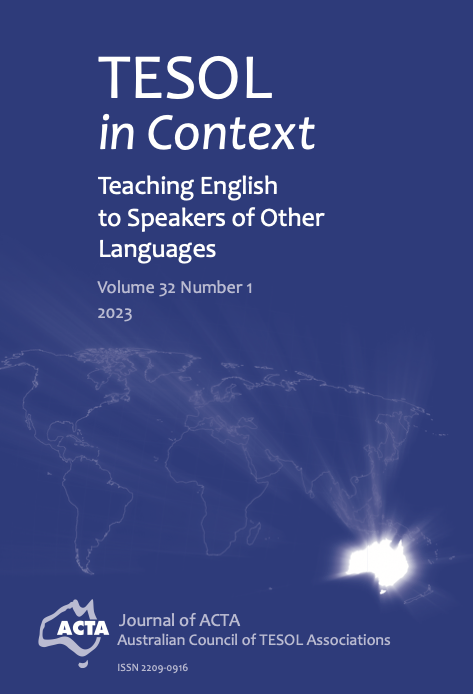Commercialisation in Australian public education and its implications for the delivery of English as an Additional Language/Dialect: An EAL/D teacher perspective
DOI:
https://doi.org/10.21153/tesol2023vol32no1art1814Abstract
Privatisation and commercialisation in education encompass a range of interrelated practices, including the outsourcing of educational services as well as increased reliance on commercially produced resources for the delivery of learning and assessment. An increase in these practices has accompanied the shift from centralised systemic management of schools and specific programs like English as an Additional Language/Dialect (EAL/D), to school autonomy whereby principals control budget expenditure decisions, ostensibly in response to the needs of their school population. The intersection between school autonomy, commercialisation and delivery of the specialised service of EAL/D is the focus of this paper. This paper presents the findings of a survey with EAL/D teachers in Australia, in relation to the extent to which they are experiencing commercialisation and the impact this is having on the delivery of a longstanding service designed to ensure equity of outcomes for English language learners. The data suggests that the use of commercial products in schools may not be aligned with appropriate educational practices which target language learning needs. There is a strong need for further research in the uptake and use of commercial products for specialist language support. This will elucidate the extent to which EAL/D as a specialisation is being impacted by the use of commercial products both in the appropriacy of the products and in the deprofessionalisation of specialist EAL/D teachers.
Downloads
Published
Issue
Section
License
Copyright (c) 2023 TESOL in Context

This work is licensed under a Creative Commons Attribution-ShareAlike 4.0 International License.






